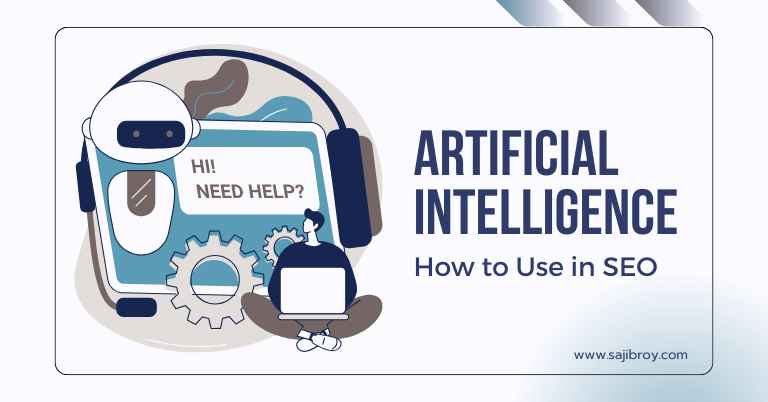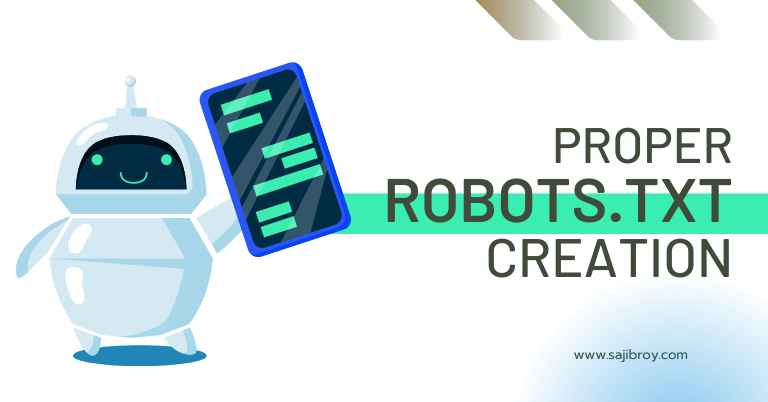Artificial intelligence is important because it enhances efficiency and productivity in various industries. By automating repetitive tasks and providing accurate data analysis, ai technology can streamline processes and enable innovative solutions.
Its impact can be seen in healthcare, finance, manufacturing, and many other sectors, where ai systems can improve decision-making, reduce errors, and enable faster problem-solving. The fast-paced growth of ai has led to transformative advancements, making it an essential aspect of modern society.
This technology has the potential to revolutionize daily life by powering self-driving cars, virtual personal assistants, and smart homes. It also has significant implications for the future of work, with predicted job shifts and new opportunities in ai-related fields. However, as ai continues to evolve, ethical considerations surrounding privacy, bias, and transparency become crucial. We will delve deeper into the importance of artificial intelligence, exploring its benefits, challenges, and future implications.
Let's See the Topic Overview
The Growth Of Artificial Intelligence
Artificial intelligence (ai) has experienced significant growth in recent years, revolutionizing the way we live and work. The rapid pace of ai development, advancements in machine learning algorithms, and the integration of ai in various industries have contributed to its increasing importance.
The Rapid Pace Of Ai Development:
- Ai has witnessed exponential growth in recent years, with significant advancements in technology and research.
- The availability of big data and faster computing power has accelerated ai development.
- Companies and researchers are investing heavily in ai, driving innovation and pushing the boundaries of what is possible.
- Ai technology is continuously evolving, improving and adapting to new challenges and opportunities.
Advancements In Machine Learning Algorithms:
- Machine learning algorithms lie at the core of ai, enabling systems to analyze data, extract patterns, and make predictions.
- With the advancement of deep learning techniques, ai models have become more accurate and capable of complex tasks.
- The development of neural networks, reinforcement learning, and natural language processing has expanded the capabilities of ai systems.
- These advancements in algorithms have enhanced ai’s ability to understand and interact with humans, leading to applications like virtual assistants and chatbots.
Integration Of Ai In Various Industries:
- Ai is finding applications across diverse industries, transforming the way businesses operate.
- In healthcare, ai is being utilized for medical diagnosis, drug discovery, and personalized patient treatment.
- The automotive industry is leveraging ai for autonomous vehicles, improving safety and efficiency on the road.
- Ai-powered chatbots and virtual assistants are revolutionizing customer service and enhancing user experience.
- Finance, manufacturing, retail, and many other sectors are also embracing ai-driven solutions to automate processes, optimize operations, and unlock new opportunities.
The growth of ai is reshaping our world, presenting both challenges and opportunities. As ai continues to evolve, its role in our daily lives will only become more prominent. It is important to understand the implications and benefits of ai, as we navigate this exciting era of technological advancement.
Applications Of Artificial Intelligence
Artificial intelligence (ai) has rapidly become an integral part of our daily lives, revolutionizing various industries and shaping the way we interact with technology. From healthcare to finance to transportation, ai is making significant advancements and bringing forth numerous opportunities for innovation.
Ai In Healthcare
- Ai has the potential to transform the healthcare industry by enabling more accurate diagnostics and personalized treatment plans.
- Machine learning algorithms can analyze vast amounts of patient data, identify patterns, and provide insights that help doctors make more informed decisions.
- Virtual healthcare assistants powered by ai can provide 24/7 support to patients, answering their queries and offering guidance on self-care when necessary.
- Ai technologies like robotic surgery and smart prosthetics are improving surgical precision and enhancing the quality of life for individuals with disabilities.
Ai In Finance
- Ai algorithms are revolutionizing the financial sector by automating time-consuming tasks such as fraud detection and risk assessment.
- Natural language processing enables chatbots to engage with customers, providing them with personalized financial advice and support.
- Machine learning algorithms can analyze market trends and patterns, helping investors make more informed decisions and optimizing trading strategies.
- Ai-powered algorithms help financial institutions identify potential money laundering activities and comply with regulatory requirements.
Ai In Transportation
- Self-driving cars, a prime example of ai in transportation, have the potential to revolutionize our mobility, enhancing road safety and reducing traffic congestion.
- Ai algorithms can optimize route planning, considering various factors like weather, traffic conditions, and fuel efficiency.
- Predictive maintenance powered by ai can help identify and address potential issues in vehicles before they become major problems, improving overall reliability.
- Ai-enabled smart transportation systems can gather real-time data from sensors and cameras to monitor traffic conditions, enabling more efficient traffic management.
Artificial intelligence has the power to transform various industries, offering solutions that were once considered impossible. From revolutionizing healthcare to streamlining financial processes and improving transportation systems, ai is creating new opportunities for innovation and efficient problem-solving. Embracing ai-enabled technologies can unlock a world of possibilities, ensuring a brighter and more promising future.
Benefits Of Artificial Intelligence
Artificial intelligence (ai) has become an indispensable part of our lives, revolutionizing various industries and transforming the way we live and work. The benefits of ai are far-reaching, impacting efficiency, decision-making processes, and customer experiences. In this section, we will explore the significance of ai in terms of these three key areas.
Increased Efficiency And Productivity
Ai has the remarkable ability to automate repetitive tasks and optimize processes, leading to increased efficiency and productivity. Here are some key points to consider:
- Automation: Ai-powered systems can perform tasks and operations that would otherwise require human intervention. This frees up valuable time for employees to focus on more complex and strategic activities.
- Streamlined processes: By analyzing data, ai can identify bottlenecks or inefficiencies in workflows. It can recommend improvements, allowing businesses to streamline their operations and achieve higher productivity levels.
- Predictive analytics: Ai algorithms can analyze vast volumes of data and extract valuable insights. With this capability, businesses can make more informed decisions and anticipate future trends, ultimately boosting efficiency and reducing risks.
Improved Decision-Making Processes
One of the most significant advantages of ai is its ability to enhance decision-making processes. Here’s what you need to know:
- Data-driven insights: Ai can analyze massive amounts of data in real-time, providing decision-makers with comprehensive and accurate insights. This enables more informed and data-driven decision-making, leading to better outcomes and strategic advantages.
- Pattern recognition: Ai models can identify patterns and trends within large datasets that might be missed by humans. This enables businesses to gain a deeper understanding of their operations, customers, and market dynamics, enabling them to make more informed decisions.
- Risk assessment: Ai algorithms can assess and evaluate risks quickly and accurately. This is especially valuable in industries such as finance and insurance, where identifying and mitigating risks is crucial for successful operations.
Enhanced Customer Experience
Ai plays a pivotal role in improving customer experiences across various industries. Here are the key ways ai benefits companies and their customers:
- Personalization: Ai algorithms can analyze customer behavior and preferences to provide personalized recommendations and experiences. This level of customization enhances customer satisfaction and loyalty, leading to increased revenue and customer retention.
- Chatbots and virtual assistants: Ai-powered chatbots and virtual assistants provide instant and personalized support to customers, 24/7. They can answer queries, provide recommendations, and resolve issues, significantly enhancing the overall customer experience.
- Natural language processing: Ai enables machines to understand and interpret human language, allowing for more seamless and natural interactions. This enhances customer communication and engagement, elevating the overall experience.
The benefits of ai are vast and transformative. From increased efficiency and productivity to improved decision-making processes and enhanced customer experiences, ai has the potential to revolutionize how businesses operate and interact with their customers. Embracing ai technologies can provide a competitive advantage and position organizations for success in the rapidly evolving digital landscape.
Challenges And Concerns
Artificial intelligence (ai) has undoubtedly revolutionized the way we live and work, with its potential to transform various industries and improve our daily lives. However, along with these exciting advancements come challenges and concerns that cannot be ignored. In this section, we will explore some of the key ethical considerations, potential job displacement, and security and privacy issues associated with ai.
Ethical Considerations Of Ai
- Bias and fairness: Ai systems are only as unbiased as the data they are trained on. If the data used contains inherent biases, it can lead to discriminatory outcomes. Ensuring fairness and mitigating bias in ai algorithms is crucial to prevent reinforcing social inequalities.
- Accountability and transparency: Ai systems can be complex, making it difficult to understand how they arrive at certain decisions. This lack of transparency raises concerns regarding accountability, especially in critical areas like healthcare and autonomous vehicles. Establishing regulations and standards to promote transparency is essential to build trust among users.
- Data privacy: Ai systems heavily rely on vast amounts of data, raising concerns about privacy. It becomes vital to protect sensitive personal information and ensure that data is collected and used ethically, with proper consent, and in compliance with relevant regulations.
Potential Job Displacement
- Automation of tasks: Ai advancements have led to automation of various repetitive and manual tasks, raising concerns about job displacement. Industries such as manufacturing, transportation, and customer service may witness significant changes in employment patterns as ai technologies continue to mature.
- Reskilling and upskilling: While ai may disrupt certain job roles, it also brings forth new opportunities. Reskilling and upskilling the workforce become crucial to adapt to the changing job market. By acquiring new skills and knowledge, individuals can position themselves for the emerging ai-driven professions.
Security And Privacy Issues
- Cybersecurity threats: Ai applications are susceptible to cyber-attacks, such as adversarial attacks, where malicious actors manipulate ai systems by injecting misleading data. Ensuring robust cybersecurity measures and continuously monitoring ai systems can help prevent potential breaches.
- Protection of intellectual property: Ai algorithms and models are valuable assets that need to be protected from unauthorized use or theft. Safeguarding intellectual property rights is vital to encourage innovation and further ai research.
- Privacy breaches: With the substantial amounts of data processed by ai systems, there is a heightened risk of privacy breaches. Measures must be in place to protect personal information from unauthorized access, use, or disclosure by ai systems or their operators.
While ai presents great promise and potential, it is essential to address the challenges and concerns associated with its development and implementation. By promoting ethical practices, supporting workforce reskilling, and prioritizing security and privacy, we can harness the power of ai while minimizing its negative impacts.
This ongoing conversation will shape the future of ai, ensuring its responsible and beneficial integration into our lives.
Future Of Artificial Intelligence
Artificial intelligence (ai) has become an increasingly influential force in today’s world. From enhancing automation to revolutionizing industries, ai has made remarkable strides in recent years. As we look into the future of artificial intelligence, it is crucial to understand its continued advancement and innovation, its potential impact on society and the economy, and its integration with other emerging technologies.
Continued Advancement And Innovation
- Ai is evolving at a rapid pace, with new advancements and innovations emerging regularly.
- Machine learning algorithms, neural networks, and natural language processing are continually being refined, enabling ai systems to learn and adapt more effectively.
- Ongoing research and development efforts are expanding the boundaries of what ai can achieve, making breakthroughs in areas such as computer vision, robotics, and autonomous vehicles.
- The continued advancement of ai requires investment in research, talent development, and infrastructure, ensuring that we stay at the forefront of this transformative technology.
Potential Impact On Society And Economy
- Ai has the potential to transform various aspects of our society, including healthcare, transportation, education, and entertainment.
- In healthcare, ai-powered systems can enhance diagnostics, develop personalized treatment plans, and even predict disease outbreaks.
- In transportation, self-driving cars and intelligent traffic management systems can lead to safer roads, reduced congestion, and increased efficiency.
- Ai-driven automation can also streamline industries and improve productivity, leading to economic growth and job creation.
- However, it is crucial to address concerns regarding job displacement and ethical considerations, ensuring that ai technologies benefit all members of society.
Integration Of Ai With Other Emerging Technologies
- Ai is not standalone; it is experiencing a symbiotic relationship with other emerging technologies, amplifying their capabilities.
- Integration of ai with the internet of things (iot) allows for more intelligent and responsive devices, creating a networked ecosystem of interconnected smart devices.
- Ai’s combination with blockchain technology enhances security, transparency, and trust in various applications, including supply chain management and financial services.
- By merging ai with virtual reality (vr) and augmented reality (ar), immersive and personalized experiences can be created, transforming entertainment, training, and marketing.
- Collaboration across disciplines and industries is critical to harnessing the full potential of ai and other emerging technologies, fostering innovation and driving further advancements.
The future of ai holds tremendous promise, driven by its continued advancement, potential impact on society and the economy, and integration with other emerging technologies. As this technology continues to evolve and shape various industries, it is essential to embrace its potential, while also addressing the challenges and ethical considerations associated with its widespread adoption.
By investing in research, fostering collaboration, and ensuring inclusivity, we can navigate the future of artificial intelligence and unlock its transformative power.
Why Is Artificial Intelligence Important: Expert Insights
Artificial intelligence (ai) has become increasingly significant in our lives, transforming the way we live, work, and interact. Experts from various fields recognize the immense value that ai brings to society. In this section, we will explore some expert insights into why artificial intelligence is so important.
Additionally, we will delve into real-life examples of ai applications and discuss predictions for the future of this groundbreaking technology.
Expert Opinions On The Significance Of Ai
- Ai enhances productivity and efficiency across industries: Experts believe that ai can revolutionize businesses by automating tasks, streamlining operations, and improving overall efficiency. This technology has the potential to free up human resources, allowing professionals to focus on more strategic and creative tasks.
- Ai improves decision-making processes: The ability of ai systems to analyze vast amounts of data and derive insights enables businesses to make informed decisions. Experts assert that these ai-driven insights can lead to better outcomes, increased competitiveness, and improved customer satisfaction.
- Ai drives innovation and new possibilities: According to experts, ai pushes the boundaries of what is possible. This technology opens up new avenues for innovation by enabling machines to learn, reason, and make predictions. With ai at the forefront, scientists, researchers, and developers can tackle complex problems and develop groundbreaking solutions.
Real-Life Examples Of Ai Applications
- Virtual assistants and chatbots: Ai-powered virtual assistants like siri, alexa, and google assistant have become increasingly popular. These intelligent chatbots leverage natural language processing and machine learning algorithms to interpret user queries, provide information, and even perform simple tasks.
- Smart homes and iot devices: Ai plays a crucial role in making our homes smarter and more efficient. Machine learning algorithms enable devices to learn our preferences and automatically adjust settings accordingly. For instance, smart thermostats can optimize energy usage based on patterns and user behavior.
- Healthcare advancements: Ai has the potential to transform the healthcare industry by improving diagnostics, treatment plans, and patient outcomes. Machine learning algorithms can analyze medical records, identify patterns, and provide accurate predictions to assist healthcare professionals in making informed decisions.
Predictions For The Future Of Ai
- Continued automation: Experts predict that ai will continue to automate various tasks and processes across industries, leading to increased productivity and cost savings. As advancements in ai technology continue, routine and repetitive tasks can be handed off to intelligent machines, allowing humans to focus on more complex and creative work.
- Enhanced personalization: With ai’s ability to analyze massive amounts of data, experts anticipate that personalization will reach new heights. Ai algorithms can analyze user behavior, preferences, and historical data to deliver highly personalized experiences, whether in marketing, entertainment, or healthcare.
- Ethical considerations: As ai becomes more pervasive, ethical concerns surrounding its use and impact are gaining attention. Experts emphasize the need for ethical guidelines and regulations to ensure responsible and fair deployment of ai systems.
The importance of artificial intelligence cannot be understated. Experts recognize its potential to revolutionize industries, improve decision-making, drive innovation, and enhance our daily lives. As ai continues to evolve, its impact will likely be far-reaching, transforming the way we live and work in ways we could never have imagined.
The future holds immense possibilities for this groundbreaking technology.
Conclusion
Artificial intelligence (ai) is revolutionizing various industries and transforming the way we live and work. With its ability to analyze massive amounts of data, ai has the potential to unlock valuable insights and solve complex problems. From businesses implementing ai-powered chatbots to provide efficient customer support, to healthcare organizations using ai to develop innovative treatment options, the importance of ai cannot be overstated.
Not only does ai improve productivity and efficiency, but it also enables us to make more informed decisions. By automating repetitive tasks, ai frees up human resources to focus on more strategic and creative endeavors. Furthermore, ai can process data at a speed and scale that is beyond human capability, leading to breakthroughs in areas such as medical research, climate modeling, and self-driving cars.
As ai continues to advance, it is crucial that we embrace this technology. While there are concerns about job displacement and ethical considerations, the benefits of ai outweigh the challenges. It is evident that the future lies in ai, and those who harness its power will have a competitive edge in our rapidly evolving world.
So, it is essential for individuals, organizations, and society as a whole to recognize the importance of ai and embrace its transformative potential.



![6-Month Local SEO Plan [Download Your Complete Proposal Template]](https://www.sajibroy.com/wp-content/uploads/2025/01/6-Month-Local-SEO-Plan-Download-Your-Complete-Proposal-Template.jpg)








